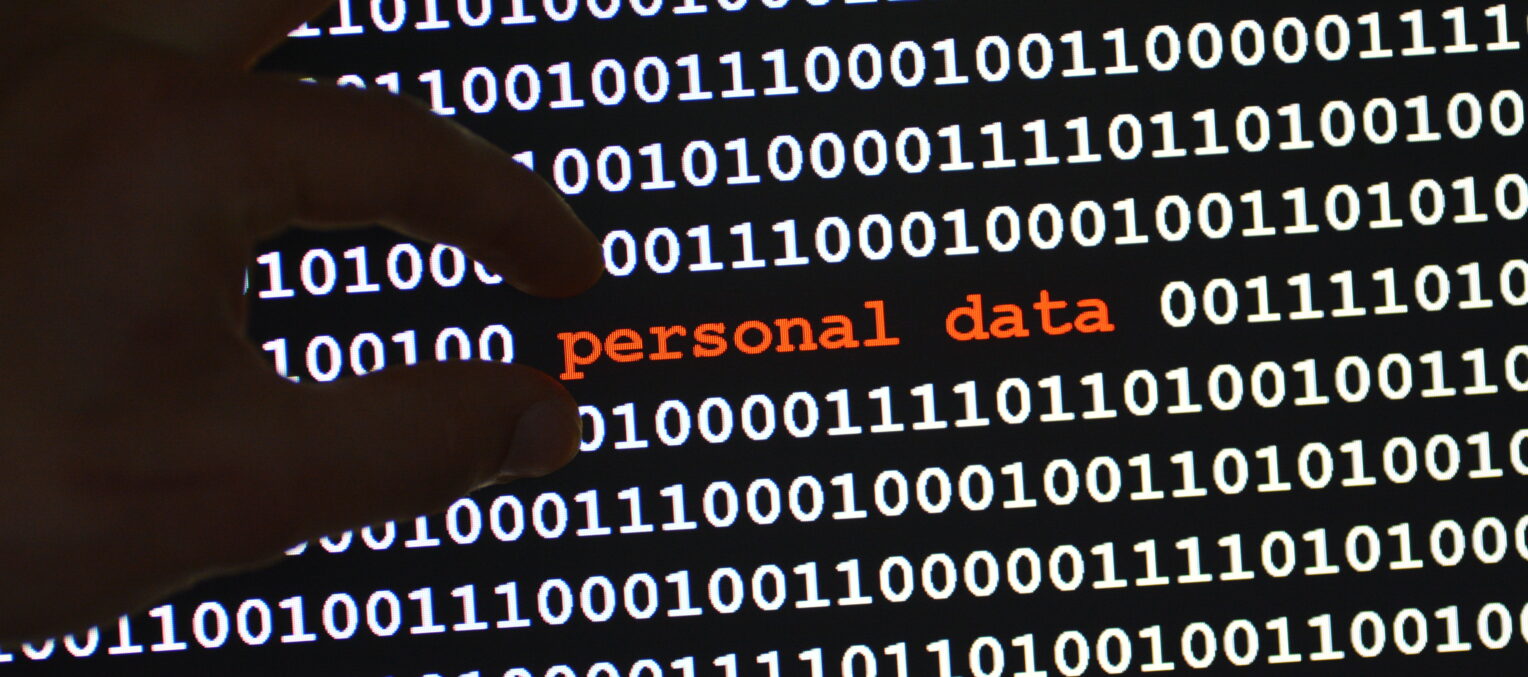
Policy discussions about the use of personal data often have “less is more” as a background assumption; that data is overconsumed relative to some hypothetical optimal baseline. This overriding skepticism has been the backdrop for sweeping new privacy regulations, such as the California Consumer Privacy Act (CCPA) and the EU’s General Data Protection Regulation (GDPR).
More recently, as part of the broad pushback against data collection by online firms, some have begun to call for creating property rights in consumers’ personal data or for data to be treated as labor. Prominent backers of the idea include New York City mayoral candidate Andrew Yang and computer scientist Jaron Lanier.
The discussion has escaped the halls of academia and made its way into popular media. During a recent discussion with Tesla founder Elon Musk, comedian and podcast host Joe Rogan argued that Facebook is “one gigantic information-gathering business that’s decided to take all of the data that people didn’t know was valuable and sell it and make f***ing billions of dollars.” Musk appeared to agree.
The animosity exhibited toward data collection might come as a surprise to anyone who has taken Econ 101. Goods ideally end up with those who value them most. A firm finding profitable ways to repurpose unwanted scraps is just the efficient reallocation of resources. This applies as much to personal data as to literal trash.
Unfortunately, in the policy sphere, few are willing to recognize the inherent trade-off between the value of privacy, on the one hand, and the value of various goods and services that rely on consumer data, on the other. Ideally, policymakers would look to markets to find the right balance, which they often can. When the transfer of data is hardwired into an underlying transaction, parties have ample room to bargain.
But this is not always possible. In some cases, transaction costs will prevent parties from bargaining over the use of data. The question is whether such situations are so widespread as to justify the creation of data property rights, with all of the allocative inefficiencies they entail. Critics wrongly assume the solution is both to create data property rights and to allocate them to consumers. But there is no evidence to suggest that, at the margin, heightened user privacy necessarily outweighs the social benefits that new data-reliant goods and services would generate. Recent experience in the worlds of personalized medicine and the fight against COVID-19 help to illustrate this point.
Data Property Rights and Personalized Medicine
The world is on the cusp of a revolution in personalized medicine. Advances such as the improved identification of biomarkers, CRISPR genome editing, and machine learning, could usher a new wave of treatments to markedly improve health outcomes.
Personalized medicine uses information about a person’s own genes or proteins to prevent, diagnose, or treat disease. Genetic-testing companies like 23andMe or Family Tree DNA, with the large troves of genetic information they collect, could play a significant role in helping the scientific community to further medical progress in this area.
However, despite the obvious potential of personalized medicine, many of its real-world applications are still very much hypothetical. While governments could act in any number of ways to accelerate the movement’s progress, recent policy debates have instead focused more on whether to create a system of property rights covering personal genetic data.
Some raise concerns that it is pharmaceutical companies, not consumers, who will reap the monetary benefits of the personalized medicine revolution, and that advances are achieved at the expense of consumers’ and patients’ privacy. They contend that data property rights would ensure that patients earn their “fair” share of personalized medicine’s future profits.
But it’s worth examining the other side of the coin. There are few things people value more than their health. U.S. governmental agencies place the value of a single life at somewhere between $1 million and $10 million. The commonly used quality-adjusted life year metric offers valuations that range from $50,000 to upward of $300,000 per incremental year of life.
It therefore follows that the trivial sums users of genetic-testing kits might derive from a system of data property rights would likely be dwarfed by the value they would enjoy from improved medical treatments. A strong case can be made that policymakers should prioritize advancing the emergence of new treatments, rather than attempting to ensure that consumers share in the profits generated by those potential advances.
These debates drew increased attention last year, when 23andMe signed a strategic agreement with the pharmaceutical company Almirall to license the rights related to an antibody Almirall had developed. Critics pointed out that 23andMe’s customers, whose data had presumably been used to discover the potential treatment, received no monetary benefits from the deal. Journalist Laura Spinney wrote in The Guardian newspaper:
23andMe, for example, asks its customers to waive all claims to a share of the profits arising from such research. But given those profits could be substantial—as evidenced by the interest of big pharma—shouldn’t the company be paying us for our data, rather than charging us to be tested?
In the deal’s wake, some argued that personal health data should be covered by property rights. A cardiologist quoted in Fortune magazine opined: “I strongly believe that everyone should own their medical data—and they have a right to that.” But this strong belief, however widely shared, ignores important lessons that law and economics has to teach about property rights and the role of contractual freedom.
Why Do We Have Property Rights?
Among the many important features of property rights is that they create “excludability,” the ability of economic agents to prevent third parties from using a given item. In the words of law professor Richard Epstein:
[P]roperty is not an individual conception, but is at root a social conception. The social conception is fairly and accurately portrayed, not by what it is I can do with the thing in question, but by who it is that I am entitled to exclude by virtue of my right. Possession becomes exclusive possession against the rest of the world…
Excludability helps to facilitate the trade of goods, offers incentives to create those goods in the first place, and promotes specialization throughout the economy. In short, property rights create a system of exclusion that supports creating and maintaining valuable goods, services, and ideas.
But property rights are not without drawbacks. Physical or intellectual property can lead to a suboptimal allocation of resources, namely market power (though this effect is often outweighed by increased ex ante incentives to create and innovate). Similarly, property rights can give rise to thickets that significantly increase the cost of amassing complementary pieces of property. Often cited are the historic (but contested) examples of tolling on the Rhine River or the airplane patent thicket of the early 20th century. Finally, strong property rights might also lead to holdout behavior, which can be addressed through top-down tools, like eminent domain, or private mechanisms, like contingent contracts.
In short, though property rights—whether they cover physical or information goods—can offer vast benefits, there are cases where they might be counterproductive. This is probably why, throughout history, property laws have evolved to achieve a reasonable balance between incentives to create goods and to ensure their efficient allocation and use.
Personal Health Data: What Are We Trying to Incentivize?
There are at least three critical questions we should ask about proposals to create property rights over personal health data.
- What goods or behaviors would these rights incentivize or disincentivize that are currently over- or undersupplied by the market?
- Are goods over- or undersupplied because of insufficient excludability?
- Could these rights undermine the efficient use of personal health data?
Much of the current debate centers on data obtained from direct-to-consumer genetic-testing kits. In this context, almost by definition, firms only obtain consumers’ genetic data with their consent. In western democracies, the rights to bodily integrity and to privacy generally make it illegal to administer genetic tests against a consumer or patient’s will. This makes genetic information naturally excludable, so consumers already benefit from what is effectively a property right.
When consumers decide to use a genetic-testing kit, the terms set by the testing firm generally stipulate how their personal data will be used. 23andMe has a detailed policy to this effect, as does Family Tree DNA. In the case of 23andMe, consumers can decide whether their personal information can be used for the purpose of scientific research:
You have the choice to participate in 23andMe Research by providing your consent. … 23andMe Research may study a specific group or population, identify potential areas or targets for therapeutics development, conduct or support the development of drugs, diagnostics or devices to diagnose, predict or treat medical or other health conditions, work with public, private and/or nonprofit entities on genetic research initiatives, or otherwise create, commercialize, and apply this new knowledge to improve health care.
Because this transfer of personal information is hardwired into the provision of genetic-testing services, there is space for contractual bargaining over the allocation of this information. The right to use personal health data will go toward the party that values it most, especially if information asymmetries are weeded out by existing regulations or business practices.
Regardless of data property rights, consumers have a choice: they can purchase genetic-testing services and agree to the provider’s data policy, or they can forgo the services. The service provider cannot obtain the data without entering into an agreement with the consumer. While competition between providers will affect parties’ bargaining positions, and thus the price and terms on which these services are provided, data property rights likely will not.
So, why do consumers transfer control over their genetic data? The main reason is that genetic information is inaccessible and worthless without the addition of genetic-testing services. Consumers must pass through the bottleneck of genetic testing for their genetic data to be revealed and transformed into usable information. It therefore makes sense to transfer the information to the service provider, who is in a much stronger position to draw insights from it. From the consumer’s perspective, the data is not even truly “transferred,” as the consumer had no access to it before the genetic-testing service revealed it. The value of this genetic information is then netted out in the price consumers pay for testing kits.
If personal health data were undersupplied by consumers and patients, testing firms could sweeten the deal and offer them more in return for their data. U.S. copyright law covers original compilations of data, while EU law gives 15 years of exclusive protection to the creators of original databases. Legal protections for trade secrets could also play some role. Thus, firms have some incentives to amass valuable health datasets.
But some critics argue that health data is, in fact, oversupplied. Generally, such arguments assert that agents do not account for the negative privacy externalities suffered by third-parties, such as adverse-selection problems in insurance markets. For example, Jay Pil Choi, Doh Shin Jeon, and Byung Cheol Kim argue:
Genetic tests are another example of privacy concerns due to informational externalities. Researchers have found that some subjects’ genetic information can be used to make predictions of others’ genetic disposition among the same racial or ethnic category. … Because of practical concerns about privacy and/or invidious discrimination based on genetic information, the U.S. federal government has prohibited insurance companies and employers from any misuse of information from genetic tests under the Genetic Information Nondiscrimination Act (GINA).
But if these externalities exist (most of the examples cited by scholars are hypothetical), they are likely dwarfed by the tremendous benefits that could flow from the use of personal health data. Put differently, the assertion that “excessive” data collection may create privacy harms should be weighed against the possibility that the same collection may also lead to socially valuable goods and services that produce positive externalities.
In any case, data property rights would do little to limit these potential negative externalities. Consumers and patients are already free to agree to terms that allow or prevent their data from being resold to insurers. It is not clear how data property rights would alter the picture.
Proponents of data property rights often claim they should be associated with some form of collective bargaining. The idea is that consumers might otherwise fail to receive their “fair share” of genetic-testing firms’ revenue. But what critics portray as asymmetric bargaining power might simply be the market signaling that genetic-testing services are in high demand, with room for competitors to enter the market. Shifting rents from genetic-testing services to consumers would undermine this valuable price signal and, ultimately, diminish the quality of the services.
Perhaps more importantly, to the extent that they limit the supply of genetic information—for example, because firms are forced to pay higher prices for data and thus acquire less of it—data property rights might hinder the emergence of new treatments. If genetic data is a key input to develop personalized medicines, adopting policies that, in effect, ration the supply of that data is likely misguided.
Even if policymakers do not directly put their thumb on the scale, data property rights could still harm pharmaceutical innovation. If existing privacy regulations are any guide—notably, the previously mentioned GDPR and CCPA, as well as the federal Health Insurance Portability and Accountability Act (HIPAA)—such rights might increase red tape for pharmaceutical innovators. Privacy regulations routinely limit firms’ ability to put collected data to new and previously unforeseen uses. They also limit parties’ contractual freedom when it comes to gathering consumers’ consent.
At the margin, data property rights would make it more costly for firms to amass socially valuable datasets. This would effectively move the personalized medicine space further away from a world of permissionless innovation, thus slowing down medical progress.
In short, there is little reason to believe health-care data is misallocated. Proposals to reallocate rights to such data based on idiosyncratic distributional preferences threaten to stifle innovation in the name of privacy harms that remain mostly hypothetical.
Data Property Rights and COVID-19
The trade-off between users’ privacy and the efficient use of data also has important implications for the fight against COVID-19. Since the beginning of the pandemic, several promising initiatives have been thwarted by privacy regulations and concerns about the use of personal data. This has potentially prevented policymakers, firms, and consumers from putting information to its optimal social use. High-profile issues have included:
- Privacy fears derailing contact-tracing applications;
- Privacy activists militating against the creation of vaccine passports and/or green passes; and
- Objections to the use of search data to detect and predict COVID-19 clusters.
Each of these cases may involve genuine privacy risks. But to the extent that they do, those risks must be balanced against the potential benefits to society. If privacy concerns prevent us from deploying contact tracing or green passes at scale, we should question whether the privacy benefits are worth the cost. The same is true for rules that prohibit amassing more data than is strictly necessary, as is required by data-minimization obligations included in regulations such as the GDPR.
If our initial question was instead whether the benefits of a given data-collection scheme outweighed its potential costs to privacy, incentives could be set such that competition between firms would reduce the amount of data collected—at least, where minimized data collection is, indeed, valuable to users. Yet these considerations are almost completely absent in the COVID-19-related privacy debates, as they are in the broader privacy debate. Against this backdrop, the case for personal data property rights is dubious.
Conclusion
The key question is whether policymakers should make it easier or harder for firms and public bodies to amass large sets of personal data. This requires asking whether personal data is currently under- or over-provided, and whether the additional excludability that would be created by data property rights would offset their detrimental effect on innovation.
Swaths of personal data currently lie untapped. With the proper incentive mechanisms in place, this idle data could be mobilized to develop personalized medicines and to fight the COVID-19 outbreak, among many other valuable uses. By making such data more onerous to acquire, property rights in personal data might stifle the assembly of novel datasets that could be used to build innovative products and services.
On the other hand, when dealing with diffuse and complementary data sources, transaction costs become a real issue and the initial allocation of rights can matter a great deal. In such cases, unlike the genetic-testing kits example, it is not certain that users will be able to bargain with firms, especially where their personal information is exchanged by third parties.
If optimal reallocation is unlikely, should property rights go to the person covered by the data or to the collectors (potentially subject to user opt-outs)? Proponents of data property rights assume the first option is superior. But if the goal is to produce groundbreaking new goods and services, granting rights to data collectors might be a superior solution. Ultimately, this is an empirical question.
As Richard Epstein puts it, the goal is to “minimize the sum of errors that arise from expropriation and undercompensation, where the two are inversely related.” Rather than approach the problem with the preconceived notion that initial rights should go to users, policymakers should ensure that data flows to those economic agents who can best extract information and knowledge from it.
As things stand, there is little to suggest that the trade-offs favor creating data property rights. This is not an argument for requisitioning personal information or preventing parties from transferring data as they see fit, but simply for letting markets function, unfettered by misguided public policies.




